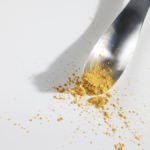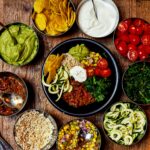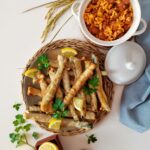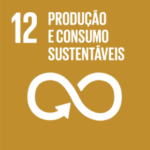
Finnish startup Solein produces food from air and solar energy
Similar to yeast, Solein is a powder produced from microorganisms with the help of electricity and carbon dioxide (CO2) that can be used in practically
We didn't find any happenings mapped to your criteria.
Try the traditional search to find articles not yet mapped with RUA.
We didn't find any happenings mapped to your criteria.
Try the traditional search to find articles not yet mapped with RUA.
We didn't find any happenings mapped to your criteria.
Try the traditional search to find articles not yet mapped with RUA.
We didn't find any happenings mapped to your criteria.
Try the traditional search to find articles not yet mapped with RUA.
The third European Rice Congress took place this week in Lisbon and Peggada was there. The relationship between rice and water was the central topic of debate on a day that also served to rethink our choices as consumers.
Lisbon hosted the European Rice Congress this week, as part of Sustainable EU Rice — Don’t Think Twice, a three-year program funded with support from the European Union, which aims to disseminate knowledge about rice production and the culinary uses of EU rice, as well as to raise awareness of the value of rice farming in terms of sustainability and the protection of natural resources.
Pedro Monteiro, President of the inter-branch rice organization Casa do Arroz, began his speech by painting the current scenario. Portugal has around 20,000 producers and ten rice mills. Consumption is 18 kg per capita per year, which puts us well ahead of the European average of 6 kg per capita, but still far behind Asia, which consumes 120 kg per capita. Even so, Pedro points out: “We are the Asians of Europe”.
Even though we produce so much, we import 45% of the rice we consume, and a lot of it, Pedro explains, is thanks to our desire to try new flavors. “I’d love the Portuguese to consume more carolino rice, but they really like basmati rice. Carolino rice consumption has been falling in Portugal, and we’ve been able to sell it through exports,” he says.
There are still some people who find the carolino difficult to cook, but to that challenge, Monteiro answers with these tips: 10 minutes to cook, 5 minutes to rest and, of course, choose quality rice.
On the sidelines of the conference, Pedro Monteiro explained to Peggada that, although his role is not to tell people what to eat, he would like to alert people to the power of choice. “When we opt for basmati or thai rice, we have to be aware that it is imported from the other side of the world, which requires transportation by boat and truck when it arrives here. Consuming locally is the key,” he says.
When it comes to sustainability, Pedro refers to consumption, but he doesn’t forget about production, which he considers to be well on its way. After all, with the application of new technologies, water consumption in rice production has been reduced by 50% in the last 30 years. “Sustainability is practiced every day in the field when we use less and less water to produce the rice,” he says.


Similar to yeast, Solein is a powder produced from microorganisms with the help of electricity and carbon dioxide (CO2) that can be used in practically

In 2023, Portugal recorded a slight decrease in the number of vegans, vegetarians and flexitarians compared to the previous study carried out in 2021, and

The month of April is going to be special. The vegan community has come together to bring you recipes that will help you eat less

This article promotes an action that encourages the reduction of waste generation through prevention, reduction, recycling, and reuse.
➡️ To discover more businesses that are aligned with Sustainable Development Goal 12 “Sustainable Production and Consumption” click here.
➡️ For news, tips and interviews about this topic, click here
➡️ Want to know more about the 17 United Nations Sustainable Development Goals? Click here
Esta publicação também está disponível em:
![]() Português (Portuguese (Portugal))
Português (Portuguese (Portugal))

